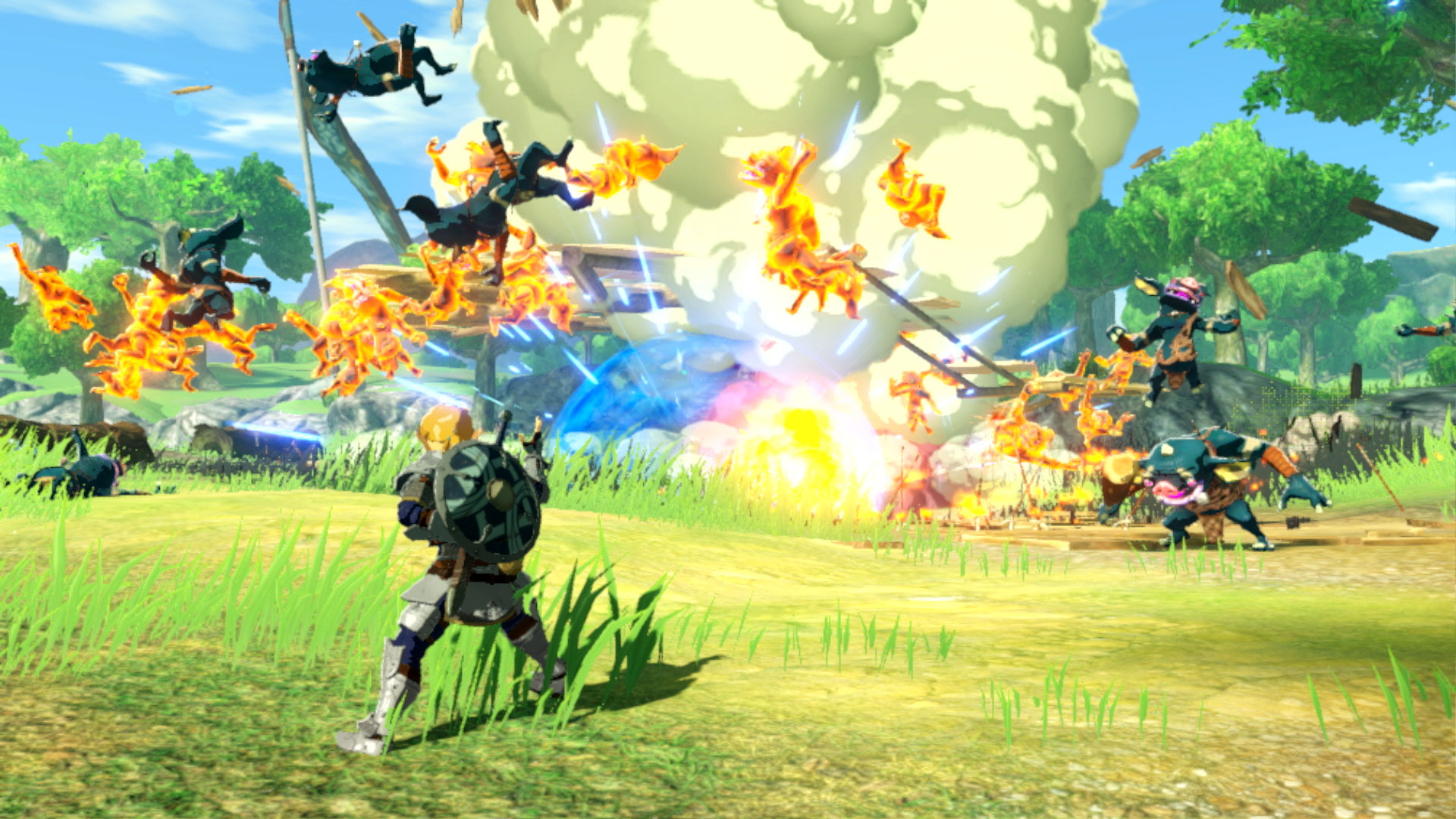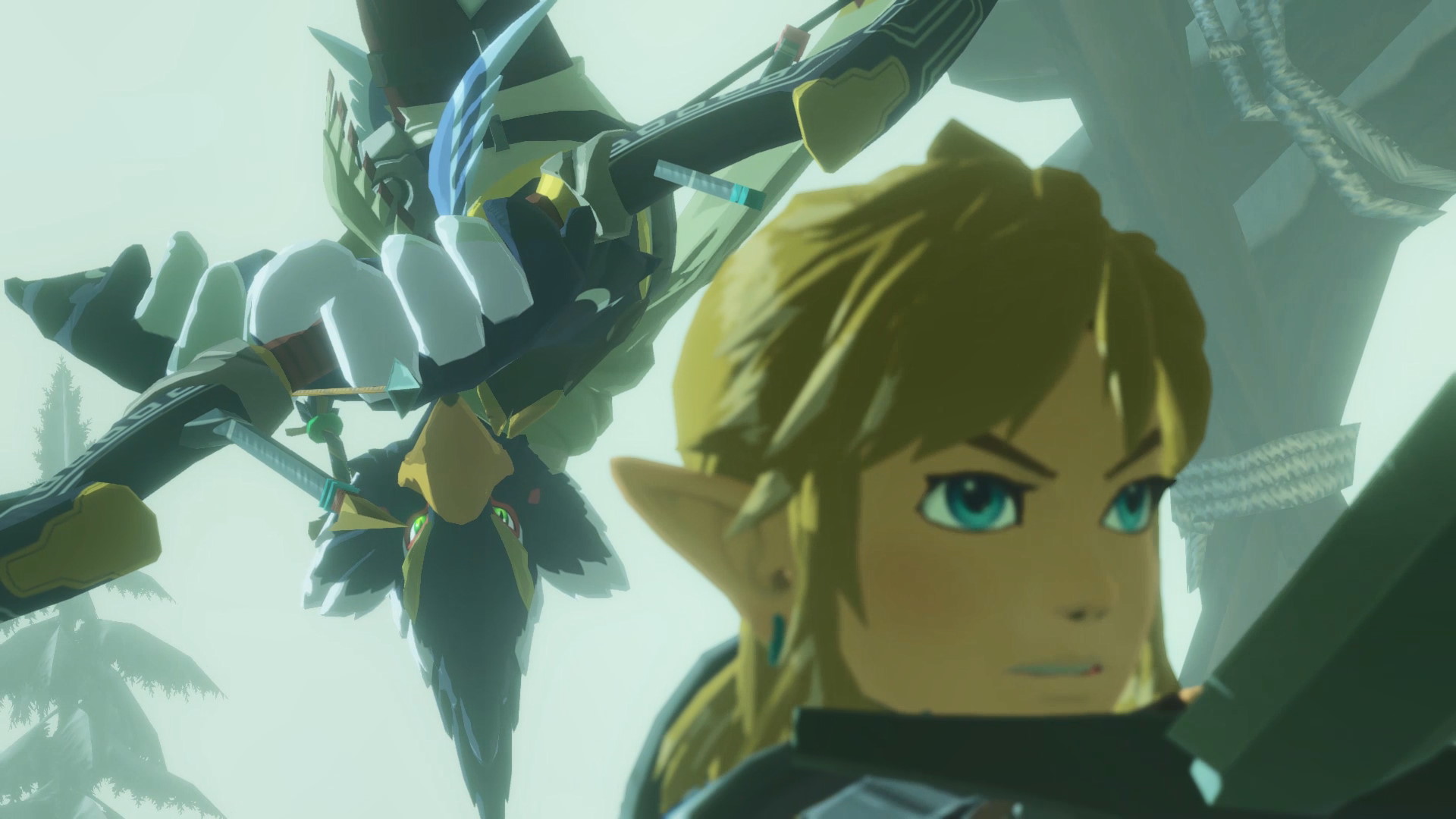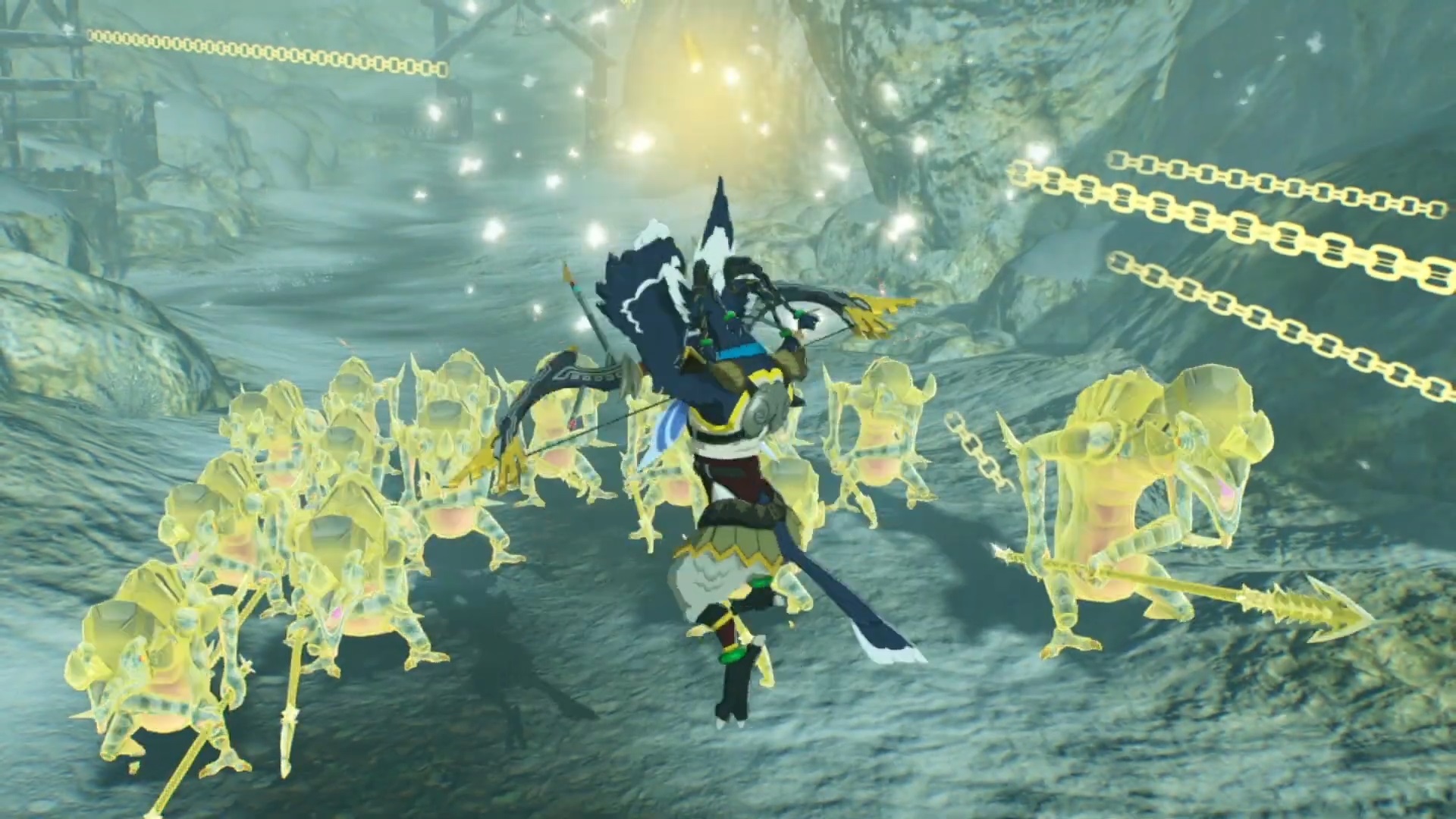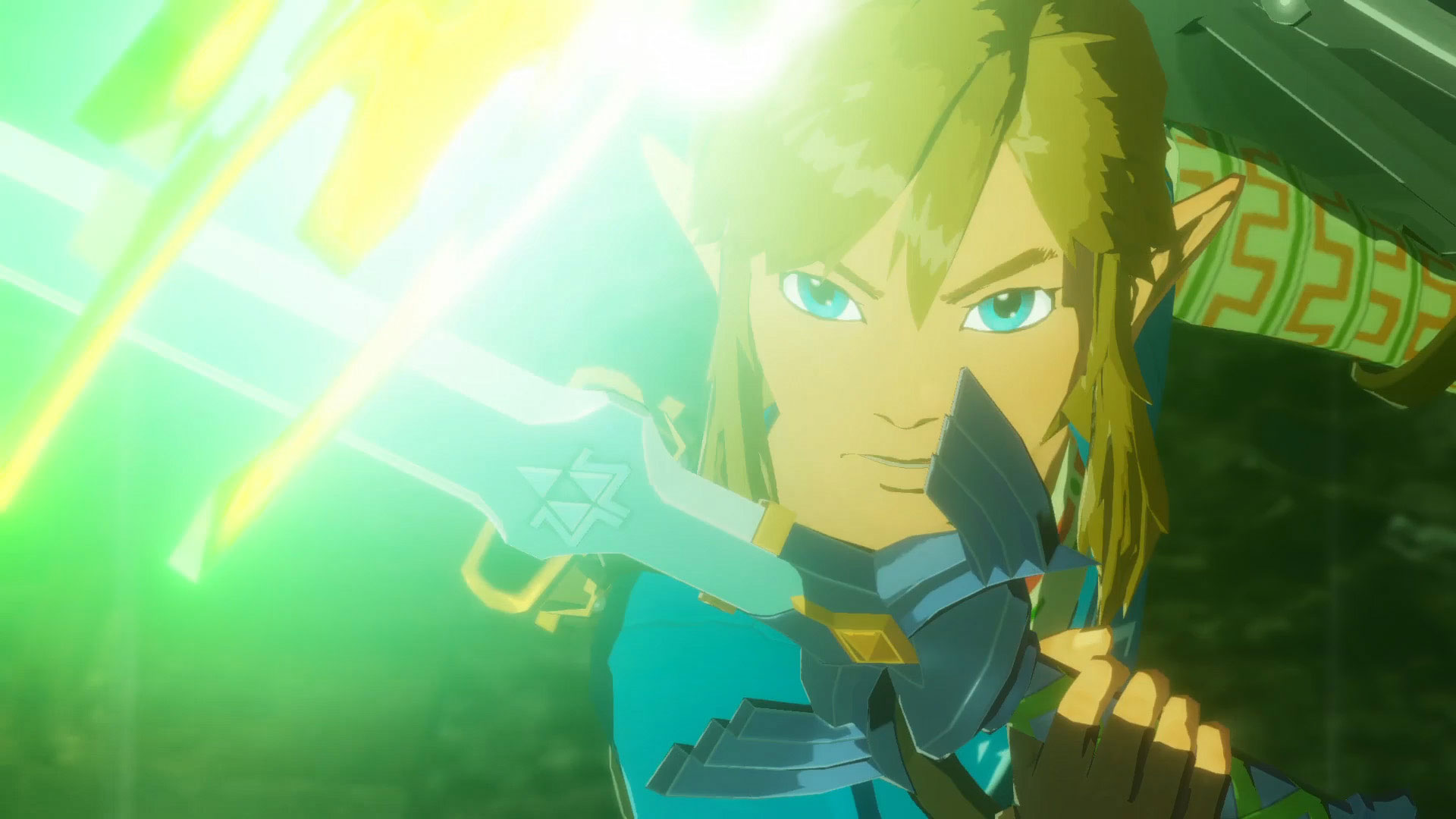Hyrule Warriors: Age of Calamity preview - a lot deeper than hacking and slashing
This is going to be an adventure for the Zelda lore buffs

If you’ve played Zelda: Breath of the Wild, you already know the story of Hyrule Warriors: Age of Calamity. Six heroes, the very best of the best from all four corners of Hyrule, doomed to fail and perish against the onslaught of Calamity Ganon. Age of Calamity is a beautiful game, presented in Breath of the Wild’s stunningly simplistic art style, but it’s a dark predecessor to Breath of the Wild’s story, dripping with the misfortune of an unavoidable fate.
Age of Calamity is one for the Zelda lore buffs, a first-hand account of the flashback events depicted in Breath of the Wild. I was always attached to Prince Sidon’s tale in the 2017 adventure (although perhaps not as attached as some parts of the internet), so my port of call on Age of Calamity’s interactive map of Hyrule was in the Zora’s Domain, to petition King Dorephan for aid against the encroaching horde of monsters.
More of the lore

If you’ve always wanted to spend more time with Breath of the Wild’s characters, you’re in for a treat with Age of Calamity. I got to see in full how Zelda pleaded with the King of the Zora for help, and how the latter staunchly refused to put Mipha in harm's way by piloting a Divine Beast. Then the horde of monsters hit close to home, besieging the Zora’s Domain, so Link, Zelda, and Mipha all jumped into action. It’s the prophesied end of the world after all, so it makes sense that thousands of monsters roam the hills of Hyrule.
This is where Age of Calamity differs from Breath of the Wild: it’s a hack-and-slash musou game, developed in partnership with Dynasty Warriors developer Koei Tecmo and Nintendo’s Zelda team. Don’t let yourself get put off at the mention of a musou game though, because if you’re imagining mindlessly slashing away at streams of Bokoblins for hours on end, you’re in for a pleasant surprise.
Koei Tecmo has designed Age of Calamity to adhere to Breath of the Wild’s basic gameplay rules (without weapon degradation). There are the standard light and heavy attacks to chain together yes, but built upon this are Breath of the Wild’s Sheikah Slate runes: the bomb rune, cryonis rune, magnesis rune, and stasis runes. All Sheikah rune abilities can be used by any playable character, and they can be used to counter attacks from elite enemies. When there’s a charging Moblin for example, I can will a block of ice into existence with the Cryonis rune, stopping them in their tracks. There’s a more deliberate pace to Age of Calamity’s combat from your standard Dynasty Warriors hack-and-slash-fest, with multiple abilities based around specific instances complimenting the basic hack-and-slash gameplay.

The entire mission to protect the Zora’s Domain culminated with Divine Beast Vah Ruta rampaging through enemy forces. But instead of watching from the sidelines like Breath of the Wild, I was placed in charge of the Divine Beast, leading it storming through a set path, trampling Bokoblins and zapping Lynels with various Sheikah abilities. Playing as the Divine Beasts is a brief but satisfying romp, crucially providing a scale of the forces you’re up against, while walking a fine line between being grounded in Hyrule without dissociating you from Zelda’s world with Hollywood-style blockbuster action.
Returning to the Zora’s Domain after the battle was won, King Dorephan reluctantly dispatches Mipha to commandeer the Divine Beast against Calamity Ganon. “On one condition,” the old king rumbles. “That you return safe and sound.” Age of Calamity truly is a tale of tragedy, as Mipha unknowingly bids farewell to the king for the final time. I know what’s coming, and try as I might against the hordes of beasts at Calamity Ganon’s disposal, I know there’s no winning this fight.
Sign up to the GamesRadar+ Newsletter
Weekly digests, tales from the communities you love, and more
Hyrule beckons once more

There’s a pretty surprising amount of depth to Age of Calamity off the beaten musou path. Taking the familiar spoils of war, like Bokoblin Horns and Lizalfos Tails, I could use these to fulfil requirements for the citizens dotted around Hyrule’s interactive map outside of combat missions. A weapons dealer needed a couple hundred items to open up shop, which I happily provided them with to open up a forge. Now I had a method of fusing weapons to strengthen and level up a main weapon for Link, for example, boosting its damage values and giving weapons a bit more purpose outside of bashing Bokoblins.
Cooking was always a charming venture in Breath of the Wild, and it makes a return in Age of Calamity. Earning recipes through merchants and traders scattered around Hyrule, I can throw together ingredients earned through missions into a lovely dish like Steamed Mushrooms or Mabe Soufflé, for a combat bonus in the ensuing mission. There’s not quite the creative depth as there was in Breath of the Wild, but it’s just another sign, along with the story and player experimentation with runes, that the team at Koei Tecmo really understands what made players adore Breath of the Wild.
From what I’ve played so far, Hyrule Warriors: Age of Calamity is a brilliant blend of musou combat with The Legend of Zelda’s storytelling. This is a game dedicated to the people who wanted more from Breath of the Wild’s story, all told through a superbly tragic backdrop. There’s some great variation in combat to be found through the Sheikah Slate abilities, and characters like Mipha, Link, and Zelda feel genuinely different to play. It’s early hours in Age of Calamity, but this adventure is a surprisingly impressive transition of Breath of the Wild’s story and combat to a musou game.
Hirun Cryer is a freelance reporter and writer with Gamesradar+ based out of U.K. After earning a degree in American History specializing in journalism, cinema, literature, and history, he stepped into the games writing world, with a focus on shooters, indie games, and RPGs, and has since been the recipient of the MCV 30 Under 30 award for 2021. In his spare time he freelances with other outlets around the industry, practices Japanese, and enjoys contemporary manga and anime.



